|
BY JENNY B It’s the holiday season! And, there is only one gift better than cozy socks to guard against cold winter floors. The gift you give yourself: Build your Board of Directors. You can call it your squad, your home team, or your life compass. These are the people who will help you steer on large and important challenges. They guard against you having bad years…or decades. And, to do so, you will need to thoughtfully engage and provide them regular updates of some substance about you.
I like calling them my Board of Directors or Steering Committee. Those familiar with school Boards, Corporate America, or who have participated on the Boards of charitable organizations might find that gives you some familiar guidelines for engagement. I also like that it reminds me that these are folks who can ask me tough questions, and, while they often lift me up, I wouldn’t dare call my cheerleaders. Sometimes, the hold me accountable or call me on my BS. (Pardon my ‘French.’ I’m being a little more informal with you, here, but would be more mindful to step up my game and come across as peak professional with my Board.) The stage of life I am in as a working parent with a young child, and all of 2020, have put a spin on things, this year. This is how I navigate building and engaging with a personal Board of Directors: #1 Your Goals Determine Who Gets a 'Seat' at the Table Picture it as if you are planning a dinner party or meeting of key stakeholders in your life. Six people is about the right number for having a conversation where everyone can participate. I wouldn’t have more than 12. Who do you need to have at that table, based on what your personal and professional goals are? From whom or with whom do you need to learn and calibrate? For me, in 2020, I have a mix of people from diverse ages and backgrounds whom I look to for parenting, professional, and ‘sisterhood/sanity’ guidance that mostly refers back to parenting or professional guidance. #2 Set the Agenda You will have to prioritize and manage the format. No one can get to a year’s worth of goals in the first hour. What is most important? What topics seem related or logically-grouped? When would you want to strategically tap someone on the shoulder to be the keynote ‘speaker’ or contributor on that topic? How will you set manageable smaller goals or milestones, and assess progress? #3 Develop a Rhythm or Meeting Cadence If you are having anxiety about this, by now. Take a breath and think of it more like you are setting the stage so you can dance to harmonious music, not have a mud wrestling match. And, here’s the kicker – Your Board members may never actually meet each other. I don’t actually recommend that you have a dinner party or one meeting with all the people you have in mind. It would be challenging and prone to group think and other group dynamics, to bring them all together in one meeting, especially if some small pockets or pairs know each other, but others know no one else in the group. You have to be clear in your purpose and decision to meet with each of them or to engage in small groups of 2 or 3. Do you have 2 colleagues who you trust who currently work in the same organization as you? Great! Schedule or flex this discussion into your regular coffee walks or video chat breaks with them. Is there someone you wish you could be mentored by, but you were never quite sure how to get started? Here’s your chance. You don’t have to explain the whole Board concept or structure to them. They may never even know who the other Boards members are. All that matters is that you are clear in making the ask of why you’d like to engage with them, how you think you both might benefit, and how you might do that. You could offer to work on something smaller you’ve seen on their plate, and let them know you can help take that off their plate, if they wouldn’t mind meeting with you for 30 minutes weekly to synch up on the topic and your larger interests in [‘x’, which can be ‘project management’, ‘becoming a team leader’, ‘becoming the School Board President’, ‘your child leaving the playground without kicking and screaming…’]. Finding a way of meeting/chatting with them that works well in the context of that relationship and is repeatable throughout the year is the key. #4 There is no ‘Cap’ on Saying Thank You and Demonstrating Value It’s year-end 2020 and everyone is exhausted. Say thank you as often as you can. Say thank you and that you admire them for [‘x’] when you ask if they want to meet or talk more regularly. Thank them when they do meet and listen to you. Say thank you, even if you are sure you already did, because they, too, were busy and might not have taken it in. Again, if you go exuberantly to your colleagues, family, and friends and ask them if they want to be on your Board of Directors, you are probably going to make a lot of other people nervous. The ones who love and support you the most will say ‘yes’, even if they are tapped out. But, you will get some ‘No’s’ from others who worry about your expectations and that they cannot take on another commitment in this unusual year. So, I recommend being a little more suave, and ninja-like in 2020. Travel light to travel far. Give yourself permission to give yourself the benefit of having a Board, and don’t feel the need to explain the full concept or ask anyone else’s permission to have it. Just make a start, and you can revise and revisit the concept until it serves you well. And, in your holiday cards next year, you can include more thank you’s to your Board members and let them know what an impact they have made on your life this past year. You might even be able to introduce or connect them with another of your Board members who can help them on a topic or need of theirs. Remember, relationships are a 2-way street. You need give back in terms of listening, tools of the trade, interesting reads, and professional/community connections, when you can. This can be as easy as cross-pollinating among conversations you’ve had with different Board members, dropping helpful hints and interesting thoughts that you can say you recently heard and were helpful to you. #5 Revisit the Structure, at least, Annually Lastly, you can edit your approach at any time. I tend to think about mine most intentionally at this time of year, when I am writing holiday cards. The connection with some Board members might not fully pan out, for reasons you can consider on your end or theirs. You might put renewed energy and emphasis into engaging with that Board member. Or, you might replace their ‘seat’ at your concept of a table with someone else who can offer the needed insight. Make sure you are challenging yourself to continue to include a diverse set of Board members that span across age, race, gender, ethnicity, career stage, and a rich pursuit of family and life passions. You are seeking balanced perspective, not an echo chamber to tell you how great you are no matter what you do. Or, that they love you when you are ticking all the items that are on their agendas and where they see your trajectory heading. And, at the end of the day or year, your Board provides you input, continuity of progress against your goals, and valuable review; you are still the boss. You set the tone and make the landmark decisions. If you take a hard look at how you have been managing your Board, and decide that you need to invest dollars into [a personal trainer, therapist, or computer programming instructor] to achieve a specific goal and bring that particular expertise to the table, then make that call. Many of your Board members will engage with you and provide you the input you need ‘for free’ or in exchange for your listening ear and sharing of your time, network, and skills. But, if you need to pay dollars for particular expertise, then set the goals, budget, and agenda with that new Board member and you make that decision. On a personal note, MaryBeth is actually the youngest person to have a seat on my Board of Directors, though I imagine she is just finding that out, now, reading this. While I had not told her in so many words, I could see how talented she is and took the opportunity to ‘stay in her orbit’ and engaged with her by contributing to this site. Sometimes, what matters most is that good people know who you are and how you are trying to grow. Sometimes, the beneficial structure of belonging to the local community garden means you will grow more fruit and fewer weeds than you would have on your own. Thank you, MaryBeth, for being a creator of opportunities and providing space for others to share and grow. Happy Holidays!
6 Comments
BY DIANE KERTH What a big important word it is, Resilience. Why is it important? It can be the difference between a healthy happy successful life or one that is filled with emotional, mental and physical pain. It’s important because life is hard! We get knocked down all the time.
Life is filled with examples such as: Your utility bills go up without warning. You work hard at losing weight only to find that when you step on the scale you gained 2-pounds. You finally are loving your job and then the company downsizes, so you’re out of a job. You’re excited to go on a first date and it was a total bust! Your child says something hurtful to you and it is like a punch in the gut. We experience big life-changing hits and we experience emotional sucker punches. There will be illness, job loss, failed relationships, pain and sorrow. Being resilient means the difference between moving forward or sinking down and feeling paralyzed. Resilience is the ability to get back up when we suffer disappointment, rejection or pain. It’s the ability to recover, spring back with grit and determination. Being resilient takes work and effort. Having a strong level of resilience helps us to manage stress, keep a positive outlook and grow through turbulent times. When our resiliency falters we can slip into depression and discouragement which in turn creates issues with our physical health. Plants and crops that get hit hard from rainstorms can look withered and tired (just as we can look). The plants might be limp and soaked, but if the roots are deep enough and the trunk is strong enough they will bounce back and become stronger. I’m always amazed by palm trees. They bend and sway during storms and can look as if they are parallel with the ground, yet, they don’t break. The storm subsides and the tree regains its stature into a beautiful tall palm tree. Be a palm tree, don’t break! Grow your roots deep into the ground, which for us means to take on challenges, look for ways to improve now and take action. We may fail, learn, and then try again but trying again is where we build resilience. Life is hard and may not, usually won’t, go as planned. When we have the right mindset and strong determination to keep going, we are being resilient. It’s important to know that we will make it through hard difficult times. We will come out even stronger when we try, fail, and get back up. This will make our resilience muscle even stronger. A muscle needs to have a load placed on it repeatedly in order to build it stronger. The resilience muscle isn’t any different. An activity to do when you are feeling tired, weak and beat up is to take out a pen and paper to make a list of every hard challenge you have encountered and came out of it on the other side. As the list grows it’s a reminder of how strong you can be when you keep taking steps forward. Be proud of the list and all that you have achieved. Stand up during adversity. Keep walking forward when it’s hard. Don’t stop because it may temporarily look dark. There is a light at the end of the tunnel. We will be stronger when we reach that light. BY DIANE KERTH Having dreams (definition: a cherished aspiration or ambition) are important to have in our lives. They can excite us, give us hope and direction. Dreams can also cause us stress if they haven’t yet come to fruition.
Last week a friend of mine said that it’s hard to “give up” on the dream she’s had for herself for over 10 years. The language we use is so important. “Giving up” can feel like failure and disappointment. Where is your dream today when looking at the options here:
Have you ever looked back and said, “Wow I can’t believe I am still at the same place I was last year!” Examples:
Make changes. Take Control. The framework for making a dream a Reality!
For example: if you want to walk 10,000 steps a day but you miss it almost every day. Adjust that goal and achieve 5,000 steps a day. It would be outstanding! Increase it the following week to 6,000 steps then 7,000 steps and so on, until you get to achievement of 10,000 steps a day. Consistent attainment of smaller goals adds to our Confidence, Self-Esteem and Belief in our ability. We always want the big goals attained on the first try but usually it’s the attainment of smaller goals that gets us to where we ultimately want to be. Following a framework gives us CONTROL in making progress. Start now by working towards the dreams you ache to have as your reality. Freshen up a past dream, create a NEW exciting dream and follow a PLAN to achieving success! BY JENNY B A friend of mine posted a screenshot of a common e-payment app that shares Who you pay and For What, unless you take action to change your privacy settings. She could see roommates paying each other back for taco Tuesday, and some funnier or more puzzling entries, including those between intimate partners.
It was funny to see and, for a moment, I felt confirmed in my ‘old school’ ways. But, then I realized the lesson scaled to an economy so much bigger than e-payments. Six months into the year that no one planned, fuses are shorter. It feels like everyone is on edge. And, in my household, neighborhood, and even in the news, it’s becoming more and more common to hear some exasperated retort. When I’m really frustrated, my most common comeback is some version of, “What’s your plan?” It gets said when my spouse doesn’t want to eat anything from the fridge full of groceries. Yesterday, I was trying to put pajamas on a 2-year-old and she was running around rage screaming because she wanted her favorite soccer ball t-shirt (which was in the dirty laundry), and I was like, “What do you want to do? Do you want to wear your favorite bottoms, because we won’t have the top until tomorrow? You can help me put on the laundry and then the soccer ball t-shirt will be clean…” When I get blocked at work, my default response is to explain that I had a plan, and challenge if the person objecting has a plan or is just throwing a wrench. My goal is always to have a thoughtful plan that shows how I am handling it and being considerate of others. Now, that doesn’t always work out. And, my 2-year-old’s most common default is, “Stop talking.” When she’s wrestling with some big emotion, she doesn’t want to be told logical next steps or how to feel. What’s yours? Is it, “Shut up” or “Let me Finish,” because you need to feel heard? Is it, “You don’t understand,” because you need to feel understood? Is it a non-committal, full-force-eyebrowed “OK”, because you are not ok? Whatever it may be, we are all getting laid a little more bare in 2020. So, I realized that it merits some reflection and perhaps adjustment before my default settings serve up my information for me to the broader community. If you ask a planner, yes, I think we need to plan for how we show up in the long haul. BY NICK HENNING The ultimate test of a human being to remain positive if challenges become too much. Remaining positive often keeps the mind in a state of calm and opens possible resolutions for the problems that come up in our lives. If we want to be more optimistic about the things in our life, the way we are living our lives should change to a more positive approach.
The pandemic has forced millions to seek employment actively, which makes it even more challenging to stand out and to get interviews. When unemployed, a job search can be very frustrating, demeaning, and even depressing. Rejection after rejection can start to have an adverse effect on your attitude. However, you can change how you look at the challenging situations in your life by thinking positively. Positive thinking often keeps us focused on what we want to achieve in life. We all need to have a vision of our goals and the way that we want to reach them. A negative way of thinking can keep us from getting out of our difficulties. Certain areas make us doubt our capabilities to do anything. But when we are positive, we know that we are strong enough to get through these obstacles. When we are more optimistic about the challenges we face, we can deal with it as calmly as possible. There are times in our lives when a problematic situation makes us feel overwhelmed. But when we have a positive attitude, we know that there is a solution to every problem that comes our way. We may feel frustrated because we can not make things work out at the moment, but when we are optimistic about our situation, we know that everything will work out for us. To continue to have a positive outlook is not easy for everyone. If you find that it is not easy to maintain this outlook, there are things that you can do to help yourself become more positive. One thing you can do is to learn to relax and stop trying to force positive changes into your life. Some people feel uncomfortable when trying to change their behavior. If you have to try to convince your brain that you should do something differently, you might not be as likely to change it. Another thing you can do to become more positive is to start exercising. Doing exercise can help you to be more positive and give you the stamina to do something at a faster pace. There are many different ways to stay positive, so take the time to think about it and use it. Start a gratitude journal and put it next to your bed. Every evening, write down three things that you’re grateful for that occurred that day. It will be an act of recalling that may be challenging initially. However, you’ll start to notice more and more things that you’re thankful for throughout the day. If you’re struggling to be positive, pull out your gratitude journal and review all the things you have to be grateful for in your life. And the last thing you can do to keep your positive thoughts alive is to think about them. There are many books and programs online that can help you keep your positive thoughts active. It can be a significant challenge to think positive when you feel like you are losing your mind. But if you want to be happy, you can’t let these feelings stop you. So remember to keep these positive thoughts in your mind during your job search. These thoughts don’t mean you should forget about your problems. However, if they are stronger than your negative thoughts, they can keep you in a positive state of mind. If you want to remain positive, you are going to have to practice it. When you first get started on something, it can be hard to stay positive. You have to be consistent with it and continue to practice it. Keep in mind that it will take time and that you have to learn how to say no. This process will help you rewire the neural networks to think and as a result, act more positively. Remember that if you want to maintain a positive mindset, your attitude has to be positive too. Your attitude has to be positive with everything that comes your way. And once you’ve got your attitude in place, you have to be strong. Think and say to yourself, “I AM STRONG!” to remain positive. Keep practicing, and continue to be positive. It will take time, but slowly you will see your goals attained! BY MARYBETH GRONEK Hold please.
I need to process in solitude. Please remain on the line and a representative will be with you shortly. I’ve come to treasure the comfy respite that is my own mind. It’s familiar. It’s welcome. It has equilibrium & alignment. It’s home. ❤ When a question of significance comes my way, it’s the equivalent of a knock at the door. The question can come from any source: a boss, a colleague, a friend, a significant other. If the question exceeds the banality threshold and requires any modicum of processing, I am reticent to open wide the door and let you in. I will most likely tell you I need to think about it and get back to you. At which point I politely close the door and ‘take it back to the team’ so to speak. I must engage my mind and think through your question deeply. The main point, though, is that I won’t be answering you right away and I don’t know when I will be able to. I must consult the many characters that live within the house for alignment. Once that happens I will get back to you. At the risk of belaboring this point, I’ll give them names. Ben is the first responder. Any new information hits him first. He’s tasked with maintaining the status quo and, thus, when presented with anything novel that would disrupt current processes or plans (which is often), he’s vehemently dissatisfied. He raises his voice, melts down, throws things. It’s all very… Real Housewives. As in most conversations, the loudest person goes first. 😉 Tina is the operations manager. Once Ben has gotten everything out of his system, Tina begins to ask how can I make this work? Her main job is to make the person at the front door satisfied in a way that also keeps the lights on. So she will take the question, internalize it, and think of solutions and paths forward. She will float these ideas past the rest of the household. Lots of back and forth is needed to make everyone comfortable with the approach (especially Ben). David is the communications director. Once a course of action/answer is decided upon, David steps in to position it just right. His job is to anticipate the sentiment & response of the porch dweller and craft his message in such a way to assuage concerns and mitigate swirl. Once alignment is achieved, I happily return to the door and inform my colleague/boss/friend/partner of the answer (using David’s household-endorsed script, of course). I’ve been doing this forever. Excluding other people from my internal processing & presenting them only the final response. Not because I dislike them. On the contrary, as a measure of respect. I return with my complete, robust analysis — a neatly-wrapped gift with a gigantic bow that I happily place at their feet. Giddy from a job well done; my glee exceeded only by my reverence. I have spared them the messy burden of meeting Ben and Tina and David. Instead I present a spokesperson. It’s all so… efficient. Lately, though, I’ve been wondering: at what cost? Pragmatically speaking, this ‘please remain on the line and a representative will be with you shortly’ approach has two main problems.
There’s something more, though. Something that can’t be quantified. I return to my original question. My modus operandi is efficient, but at what cost? Lately, I’ve been asking myself questions like — what does it mean to let someone *dwell* with me in my life? Not just “share space” with me, but actually let their presence impact that space. To give them agency in my life. I don’t just want bodies inhabiting my geosphere; I want souls interfacing with my existence. I want to “let people in” in the deepest sense of the word — giving them sight-line into my thoughts and emotions and letting them inform those thoughts and emotions. Otherwise “relationships” are just a fancy moniker for dress-up. I have constructed this beautiful answer for you and all you get to do is choose what sweater it wears. That seems…uneven. I’m doing all the work and you’re just a reactive spectator. We were made for community. We were made for depth. We were made for the messy back and forth with each other. We were made for more than dress-up. I’ve been leaning into this conviction. More and more every day, I’m challenging myself in this space. Here are some examples. I’m working on the craziest project at work right now with an aggressive timeline in one hand and expectation of excellence in the other. I lead a team in designing operational processes amidst a solution landscape that keeps changing. As soon as I tackle one problem, five more problems surface. I’m being tapped for thought leadership at such a rapid pace that I don’t have the luxury of retreating to my mental bunker and emerging with a PR-approved response. What I mean to say is — my colleagues are now meeting Ben, Tina, and David. They are seeing it all. And I hope they respect me more for it. My boyfriend and I just hit our 8-month anniversary (all the lifers out there collectively awwwwed). I’m learning what it means to process things with him. To let him see Ben first. And respond to Ben. I’ve found that when that happens, the “operational” conversation with Tina goes much more smoothly. And we arrive upon better outcomes together. Sometimes, we don’t even need to pass things by David. ❤ And my appetite for this way of processing increases more and more each day. It was extremely uncomfortable at first (and still is). Embarrassing even, as I expose parts of myself that haven’t seen the light of day; the oxygen-deprived weaklings struggling to stand on their own two feet. I can do nothing but absorb the humanity of it all. Even so, I’m starting to sink in to this glorious feeling that for the first time in my life I am actually ‘letting people in.’ I used to think “letting people in” meant ensuring no room of my house was ‘hidden’ from them (aka no secrets). What I’m telling you today is that that concept is great, but elementary. What good is knowing all the rooms if you are not acquainted with the people inside? The people who have so artfully decorated the rooms that provide you so much refreshment and comfort? Here’s a more mature understanding of ‘letting people in’: it’s about providing others sight-line into our cognitive processes and giving them the immense privilege of influencing the outcome. I’ve found that when I do let people see and inform my thinking, we achieve a better result together (and usually get there quicker!). And later on, upon settling into my mind at the end of a long day, its a different sort of retreat. Not like I’m hiding or scrambling for an answer. Rather, a celebratory retreat, like I’m sharing a beer with some dear friends who just achieved something worthwhile. I’m not saying that from now until eternity I’ll let people in as soon as they knock. I pick and choose my entry-points. And sometimes my introvert persona insists on having its own way. And I yield. That’s more than okay. My message here does not deal in absolutes. But I will say this. Today, and yesterday, and the day before that — I let the porch dweller in. And we’re both better off because of it. BY JENNY B We had similar drop-off times at our daycare. You were the mom who always had cool sunglasses and an actual hair style. Our kids were inseparable in their 2-year-old classroom. They would greet each other with palpable excitement and the biggest hugs. The daycare teachers told us the girls loved each other so much that they had to tell them to hug or pat on the back instead of exchanging kisses while they played. They chose each other, and it was the purest form of baby love. We don’t have the same social circles, and I only ever ran into you once in the grocery store. Our kids started climbing out of their seats in the shopping carts to get to one another, and we laughed. They had recognized each other before we had noticed ourselves. Being barely 2-year-olds, they didn’t talk much, and didn’t need to to be thick as thieves. I showed you this photo and a short video from the Valentine’s day party. In the video, their little eyebrows raise and they gleefully charge toward each other, swinging around with abandon on the school gym dance floor. In another short clip, they are wiggling and shaking, like a small modern dance act to the song, “Shake it off.” They were completely unrehearsed and yet so in synch. I thought about asking for your phone number, so I could send you the pics from the school party. But, you looked tired and mentioned that you had some good ones, too. So, I let the moment pass. I was just getting to the point in my own motherhood journey that it felt like things were getting easier. I resolved that the next time I saw you I would suggest that we have a playdate/meet-up outside of the daycare. I had just found a discount on passes to the Children’s Museum. When COVID-19 precautions temporarily closed the daycare in March, I was overwhelmed trying to balance multiple responsibilities. In the blur of thoughts about the well-being of family and friends, I wondered how your household was. It’s one of those things never to assume and to wait until you’re told, but I thought I had noticed that you may be pregnant. When the daycare reopened at limited capacity, you didn’t return. Weeks later you and several other families have not returned. I’ve thought about asking the school director to share our family’s contact information with you. What is the protocol for this? I haven’t been sure what to say to my daughter or what I would say to you, now. Logistically, we won’t be able to hang out at the Children’s Museum, any time soon. And, 2-year-olds aren’t great on video calls. If you are dealing with extra stresses from a job loss or related to health/pregnancy, I don’t want to burden you. I guess I just want to know if you are doing ok. I wanted to have other ‘mom friends’ and know that I am doing ok. It feels like the tectonic plates beneath our feet have shifted and that whatever I was going to try to talk about with you during a meet up in March would be so different now. My daughter used to wake up sometimes in the morning talking about how she had to get dressed to go see Harper. Sometimes, trying to get her to go to bed, we’d name all her cousins, one-by-one, “Jacob is sleeping in his bed. Tyler is sleeping in his bed…” And, she’d contribute to the list, “And, Harper is sleeping in her bed.” I think the whole Covid-19 Stay At Home timeframe was so strange and abrupt, at such a young age for her, that she didn’t ask questions about it. Or, maybe little kids are just so used to sweeping changes and the end of eras, because they are growing so quickly. To me, it feels like that routine and the mention of Harper’s name in our house just dropped soundlessly off a cliff. I was almost afraid to broach the topic with her, in case it upset her to remember that she hadn’t seen Harper, or that I didn’t have the answers. With kids starting back at school this week, I was reflecting on all the new beginnings and missed connections in some way. My daughter talks a lot more, now. I asked her who she played with at school, and she was naming the children. I paused and then decided to open the subject, “Did you play with Harper?” She looked at me puzzled, like I missed the memo, and said, “No, she went home,” in a way that I knew she must have been asking her teachers and learned that response weeks ago. I hope that you are well. I hope that you are out there having a healthy second baby, if that is the path you were on. My daughter will be turning 3, soon. Maybe we can find a way to have the girls celebrate, together. I heard Taylor Swift dropped a new album in July… BY DIANE KERTH Your finances are being challenged. Your boss is micro-managing. Maybe you don’t like your job. Maybe you don’t have a job. Your health is always of concern. Your family is adding to your stress and the world constantly has something happening. It’s easy to get in the mode of ‘everything is bad, my life stinks, and it feels like it won’t be getting better anytime soon’ as a way of LIVING. (Is that living??)
I have heard many people over the years say that they are OPEN to coaching, advice or guidance but the truth of the matter is there are times people DON’T really want to hear anything constructive from someone else. Yes, I do get it. Life is hard and sometimes people just want to wallow, be sad or feel angry because they think, “No one else really understands what I’m going through or how hard my life is!” We have all been there at one time and it’s hard to go through things that we didn’t choose to have happen to us, or sometimes we are living through choices we did make and now realize was a bad choice. Change of any sort can be hard! The difference with many successful people is how long they stay in that mode of wallow or even realize that they ARE wallowing and soaking in the misery. It’s unproductive and will make life worse the longer they stay there. We need to stand up on the inside, shake off the negativity and DO something to move forward. We really need to FIGHT to MOVE forward. “You don't lose if you get knocked down; you lose if you stay down”. ~Muhammad Ali So, what’s a solution? Start asking yourself, What CAN I do? Stop focusing on what you don’t have any control over. Focus on what you do have control over. Here are some examples of what I have heard over the last 25 years that do NOT move you forward:
From now on ask yourself these 4 magic words: What CAN I do? I can……………….. I can clean my car. I can call a friend. Ask about their lives. Listen to them and say nothing about my own problems. (Doing for others is very healthy) I can take a walk. I can drink more water. I can research something online that I have always wanted to do. I can ask someone for help! (This IS doing something and often the hardest thing to do.) I can……………… It’s the MINDSET we all need to strive for, there are ALWAYS things we CAN do. Treat this as an experiment for the next 7 days. Keep asking yourself at any moment you feel stuck, “What CAN I do?” and see how your life changes. BY MARYBETH GRONEK With most things still closed and social distancing orders in place, I would like to say I’m spending all my extra time on fruitful and edifying pursuits, like reading, scrapbooking, and deep cleaning my apartment. In reality, the majority of my time has been consumed by take-out and TV. And watching the dramatic performance that is 2020 unfold in all it’s Shakespearean glory. Please tell me I’m not alone in this. The silver lining of this couch-potato, sedentary existence has been the absence of a few extra pounds around the waist (what some have wittily monikered “the COVID-15”). Ironically, I’ve actually lost weight due to my *accidental* intermittent fasting. All the hours blur together, and I get to 2pm realizing I haven’t eaten yet. I’m sure I’m not alone in this either. Watching TV during quarantine feels a lot like reading Harry Potter in the 2000s or the Hunger Games/Divergent in the 2010s. These fantasy and dystopian novels allowed us to transport to a place totally foreign from real life. And in so doing we could relax into something that was so ‘other,’ so not like what we were experiencing. It provided respite. And a common experience that we all could, for the most part, get behind. In such polarizing times as these, my time in front of the TV has, shockingly, had a grounding effect. It’s provided characters and storylines that have inspired me, made me laugh, and most importantly made me feel like a human again. Which, in a mask-filled, glove-filled, six-foot-distance-filled society, is a welcome refreshment. Without further ado, I’d like to introduce you to the five most important fictitious characters in my life right now. Captain Janeway Janeway is Captain and lead actress in Star Trek Voyager. Assertive, driven, feminine. She is the perfect example of a leader. She goes head-to-head with the war-lusty Kazon. She evades the Vidiians and their unconscionable organ-grafting racket. She crosses the Nekrit Expanse without precedent or regret. She does the unthinkable in negotiating with the Borg to ensure her crew’s safety. Oh, and she has terrific hair. #Bungoals Let’s talk about her crew. She brings together Maquis and Federation crewmates — both with distinct organizing and leadership styles — to operate as a cohesive and unified force under her command. She treats each crew member with decency and dignity. She speaks her mind when people miss the mark, and offers praise when it is well-deserved. She’s tough and kind. Her crew adores her and respects her, a highly-coveted combination for any impactful leader with a long view of history. I find myself admiring her interpersonal dynamics, her directness, her leadership style, and her compassion. I find myself using Janeway phrases like ‘Acknolwedged!’ and ‘I’ll be in my ready room’ (the former at work, the latter with my boyfriend). I find myself thinking if I could be more like her, there’s not a problem I wouldn’t be able to solve or a dangerous scrape I wouldn’t emerge from with grace. I find myself wondering what my relationships would be like if I gave more second chances the way Janeway did to Tom Paris and B’elanna and Seven of Nine. I find myself thinking if I could navigate the many seasons of my life the way Janeway navigates a starship, I’d be more than alright. Perry Mason He’s the stuff of legends. L.A. Defense attorney. Suit donner and bullshit slayer. There’s not a hopeless, yet justified, cause he’d turn down. He defends the innocent client with bad optics, you know, the person found standing over the dead body holding the murder weapon but actually didn’t do it. A bulwark for truth, justice, and the American way. He finds a proper motive the way a stoned teenager finds a Taco Burrito King — quickly and with singular devotion. And no one says “Incompetent. Irrelevant. And immaterial” quite like he does. Cinematically, the show is the perfect blend of suspense and predictability.
The show — boasting one of the longest syndication runs in TV history — is a history-buff’s dream. Set in 1932 Los Angeles, it was the first courtroom drama to hit television, as well as the first hour-long program that wasn’t a Western. Courtroom shows are so ubiquitous nowadays, so it’s hard to imagine being the first show of its kind pioneering that trail. But Perry Mason was more than an archetype. His stoic tenacity for justice inspired many now-notable attorneys and justices, like Sonia Sotomayor, to pursue litigation as a career. Sabrina Spellman Yes, I am re-watching this late 90s show about a teenage witch, her two crazy aunts and their talking cat. No, I am not embarrassed to admit it. It’s been the guilty pleasure that I cannot get enough of. I didn’t watch this show when it first came out. I was so bookish my teenager years that I barely came near a TV (how do you work this remote, anyways?) I first watched the show on Amazon Prime during grad school and I was hooked. Sabrina is the high school student I wanted to be — confident but not popular. She’s quirky & fully embraces her eccentricities. That confidence gets her the dreamy boyfriend and an overall fun, rich life. The first episode is Sabrina’s 16th birthday when she finds out she’s part-witch. Throughout the show, her aunt Hilda and Zelda, as well as the former-dictator-turned-cat Salem, help Sabrina through the process of maturing in her powers. I like Sabrina the Teenage Witch the way I like Jane Eyre and To Kill A Mockingbird — it’s a Bildungsroman, aka ‘coming of age’ story. I love watching Sabrina mess up and learn from her mistakes. I love seeing the encouragement she gets from her family as she moves from adolescence to adulthood. And honestly, this go around, I’m taking notes. If I’m ever blessed enough to have children, I’d want to raise them the same way. Not with a talking cat, obviously, but with a family culture that encourages exploration, delivers guidance with charming candor, and makes space for grace. The Victorian house and the magical powers would be an added plus. 😉 Andy Griffith Andy Griffith is the dopest, most honest and upstanding sheriff that ever did grace the big screen. Son to Aunt Bee, father to Opie, and mentor to Deputy Fife, Andy is the *glue* that holds Mayberry together. And his southern drawl is somethin’ charming. More laid back than a recliner, his easy-going, genteel attitude gets delinquents to change their ways & earns him the respect of everyone in the town. He’s Opie’s dad. He’s Mayberry’s dad. And, if you’re anything like me, you leave each episode kind of wanting him to be yours too. Helen Decatur If you’ve been reading this and wondering to yourself, How geriatric! Does she even watch anything from a more recent decade? Alas! You are wrong. Well, partly wrong. I do watch a lot of MeTV, who, judging by their preponderance of incontinence and life insurance commercials, is targeting an audience above seventy. So yes, I’m a bit of an old soul. But I do watch TV from this decade. I watched Fuller House (and loved it). I watched Once Upon a Time (and rewatched it). I watched Tiger King (and couldn’t quite settle on how I felt about it. Horrified? Enthralled? Is there really one word to summarize the vast array of emotions accompanying that show?) Lately, though, I’ve been watching Sweet Magnolias on Netflix. The story of three women from a small town who go into business together. Helen Decatur, one of those three woman, is my TV crush right now. She’s a fun, witty, and vivacious attorney who uses her charm to pretty much get anything she wants. While she’s tough, she’s got such a soft side. I think that’s why I like her so much. Her power hasn’t diminished her femininity one bit. She’s not afraid to cry or tease, and when she speaks her mind its not in a harsh way. Firm but kind. She reminds me that I can catch more flies with honey than vinegar. And I don’t have to trade assertiveness in the process. Added bonus: Heather Headley (the actress) and I used to go to the same church back in the 2010s and to see her career skyrocket has been nothing short of amazing. I’ve learned 5,728 million things during quarantine.
My most favorite lesson? Don’t be picky with your muse. Inspiration comes from the oddest of places. Like fictional TV characters. I try not to be too choosy. BY DIANE KERTH It was Friday afternoon. The workday was coming to a close and I couldn’t wait to pour myself a glass of cold white wine. When I got home I went to the refrigerator, opened the door and to my utter amazement no wine! How could this be! It was disappointing to say the least. I didn’t feel like making the trek to the store so, I went back to the refrigerator and looked again as if maybe I missed a lonely bottle of Chardonnay pushed to the back, hiding behind the food. No, nothing, not a single bottle of Chardonnay hiding anywhere. All that I saw, was a bottle of Champagne on the top shelf that I was saving for a special occasion.
Then I realized I have had that Champagne bottle sitting there for at least 2 years! For a “special occasion”? I have had many wonderful events in the last 2 years so why was I SAVING it? And what makes a bottle of Champagne any more special than a bottle of wine? This really had me thinking. The Champagne I was staring at in the refrigerator was only about $10 and the wine I usually purchase is between $10 - $15 so what gives? My bottle of wine is often MORE expensive than the Champagne. Is my problem that I spend too little on Champagne or is the problem that I put too little value on the wine just because it doesn’t sound as fancy as Champagne? Why do I value one thing more than another? Now we are on to something! Do we value someone more when they have a special job title? Or how they look? Or what they drive? How much do we value OURSELVES? Self-worth (a sense of one’s own value) is a driver to many things in our lives. When we have a healthy self-worth, we can have an easier time with decisions, stress and pressure. We can be open to experiences that stretch us into growing as a person. Every day we are constantly communicating with ourselves. It’s called thinking. 😊Over and over we may be repeating some of the same statements in our heads. What we think about can direct how we feel about ourselves. Are we more likely to be successful if we are saying to ourselves: “I messed up again. Why aren’t I as attractive as other people? I am a failure. I should be making more money in my life by now. If I were thinner people would like me more. If I were taller I would probably be more confident. Maybe I’m dumber than I think? Am I a big loser? I thought I was smart, am I just kidding myself? ” Or are we more likely to be successful if we repeat over and over: “I know what I am doing. I am an awesome person. I know I am doing my best. I am improving every day. I am strong. I am special. I am valuable. I am loved. I am a great person. I am succeeding at life. I am confident. I am outstanding. I am worthy. I like me.” We need to do our best to feed ourselves strong positive language. The words that we keep replaying in our heads make a huge difference on the quality of life we are living daily. We can be so hard on ourselves that we may not even realize it. How we communicate with others, is important for building relationships, having impact and being understood and it’s also CRITICAL to have positive strong communication with ourselves. On the road to a successful life we need to have a strong self-worth and build on it every day. There are other aspects of how we can increase our self-worth such as doing things we may have always wanted to try but never have. It’s about doing them and completing them, not necessarily being good or bad at them. We also need to treat ourselves well physically and take charge of the areas in our life that we have control over. A good first step to increasing our self-worth is to start being aware, mindful, of what we are saying to ourselves every day. Feed your mind with words that will build you up not rip you apart. When we understand that we are valuable and worthy, it allows us to say YES or NO to choices without worrying about pleasing someone else. Increasing our self-worth, increases our ability to stand up and live the life we want to be living. I said YES, to drinking the Champagne! |
Previous PostsArchives by Month
December 2020
Categories |
Site powered by Weebly. Managed by Namecheap

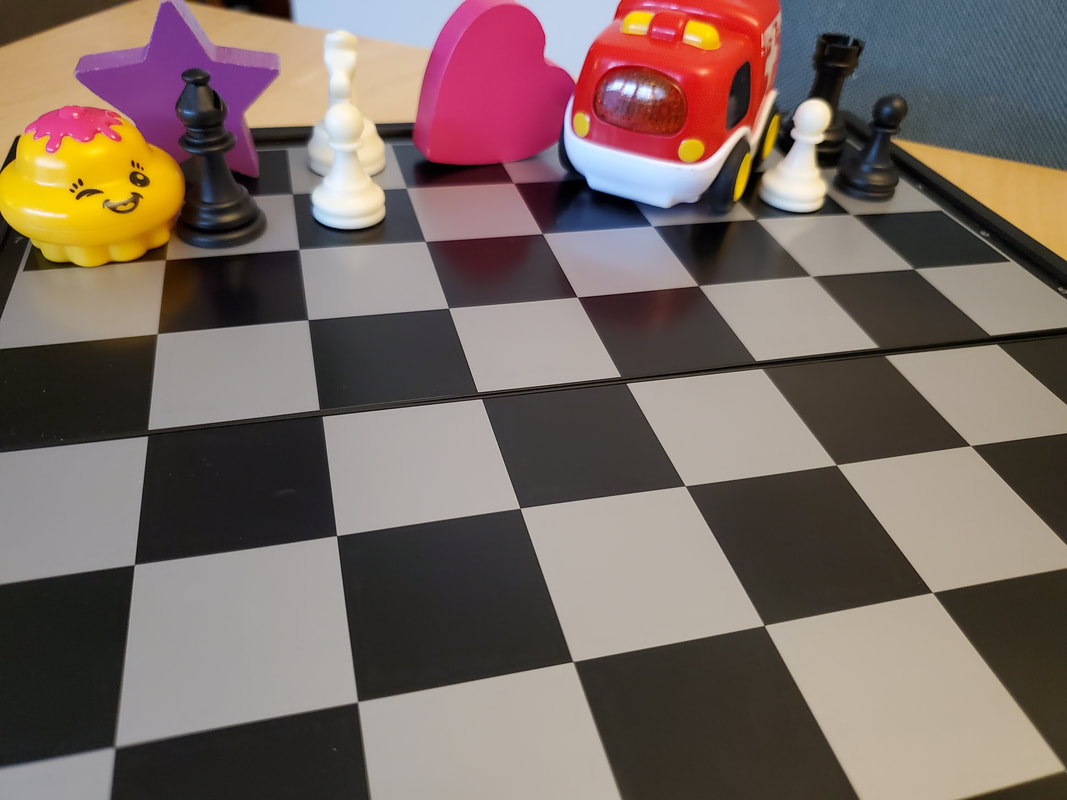



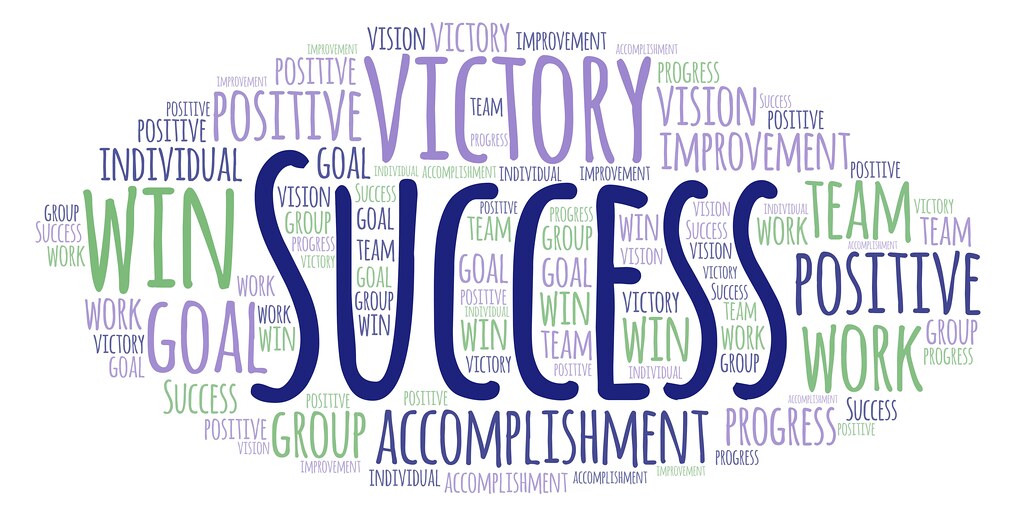

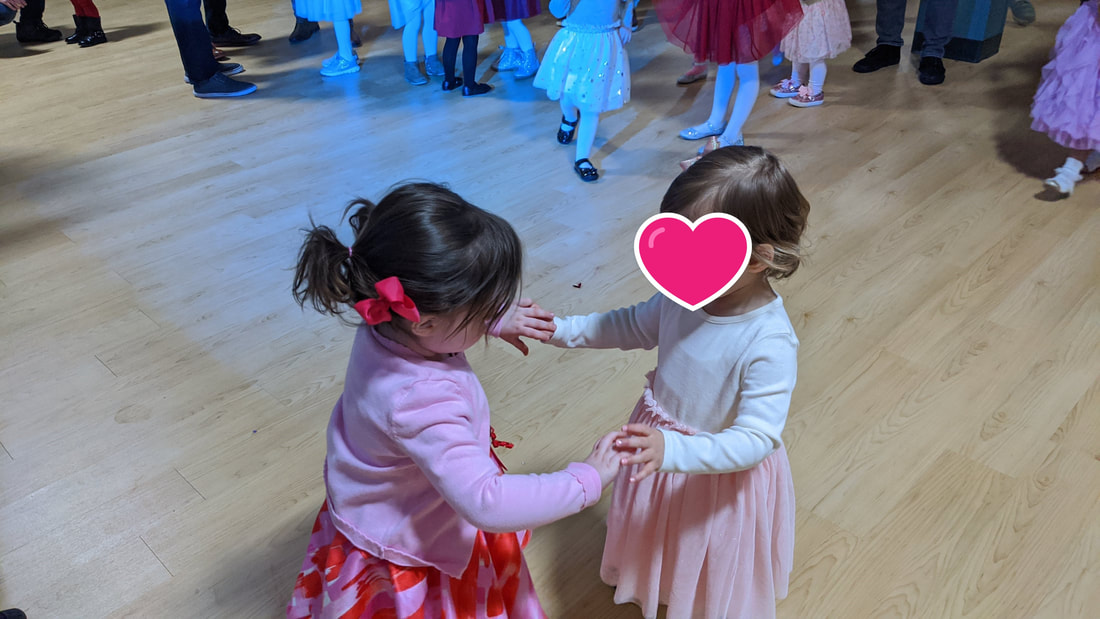



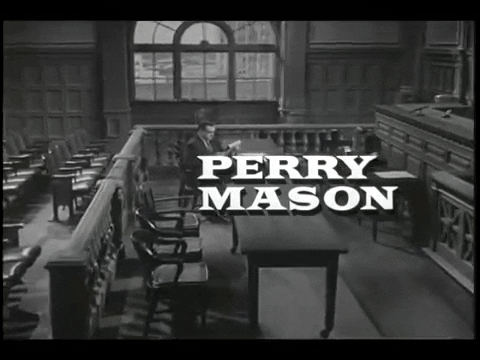

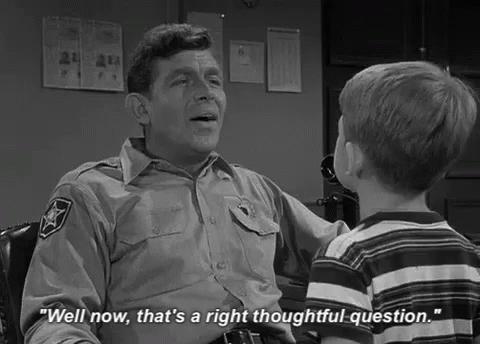
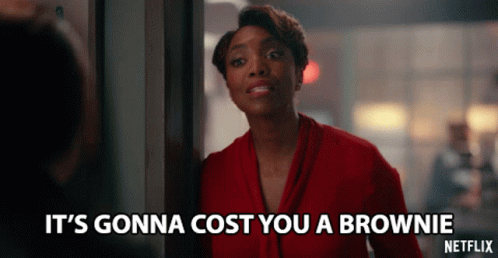

 RSS Feed
RSS Feed